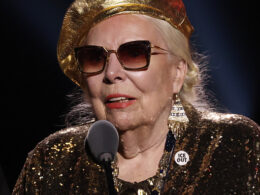America’s addiction to policies aimed at policing and incarcerating Black and Latino Americans begins with our children — especially Black children. In 2017, New York State challenged that legacy by passing Raise the Age to stop automatically prosecuting children as adults (regardless of the severity of the alleged offense).
The Legislature recognized the injustice of a system that disproportionality targets youth of color and rejected the disingenuous logic historically used to send adolescents into the adult legal system. In other words, New York finally decided to treat youth like youth. But now the district attorneys and NYPD commissioner want the law changed and are working hard to gut protections designed to create a more dignified, just, and equitable system.
To be clear, long-time proponents of Raise the Age are concerned, too. But they are concerned about the state’s failure to effectively implement the law. Rather than seeking legislative amendments, prosecutors should pressure the state to release bottlenecked funding intended to support alternatives to incarceration and make them available for New York City.
Rolling back Raise the Age is misguided. According to John Jay researchers, the slight uptick in youth arrests in New York City “as the social and economic disruptions of the COVID-19 pandemic took hold” mirrors the scale and direction for other age groups, and “the patterns of change were not consistent with a youth-specific increase” attributable to Raise the Age.
New York cannot fall prey yet again to the false and sensationalized fearmongering of the 1990s. As discussed in the Juvenile Law Center’s Suspended Empathy report, New York’s draconian laws allowing children to be charged as adults as early as 1962 was an outlier well before other states passed such provisions.
And when highly publicized incidents such as the Central Park Exonerated Five case happened, New York doubled down on the now-debunked superpredator myth and passed additional laws targeting youth. The harms to Black and Latino youth have been profound.
Not only did the fearmongering of the 1990s lead to the wrongful conviction of five innocent youth, but it has also contributed to the persistent disproportionate arrest and conviction of New York’s children of color. Raise the Age was New York’s way of treating, in part, a disease it created. We cannot go back.
These rollback efforts must be rejected. We already know that sending youth to an adult system that fails to serve their interests increases the likelihood that they will commit a new offense. We don’t make children better by removing them from the community, shackling and caging them, subjecting them to maltreatment, and failing to provide the tools they need to overcome their circumstances.
To be sure, we are not ignoring the concern that some instances of serious and sometimes violent crime among youth might require different interventions. But the current Raise the Age law allows for those differences by authorizing judges to remove cases involving 13 to 17-year-olds to adult court when they believe the circumstances — including serious injury to a victim — warrant such treatment.
If prosecutors and the state were genuinely interested in public safety, they would be pushing to fully implement Raise the Age funding, rather than seek to cage more children and increase police surveillance. With access to ample research on what works to prevent youth crime and rehabilitate youth, the state must invest in evidence-based programs that help young people navigate life’s obstacles, including vocational training, improved education, family support, neighborhood revitalization, credible messengers, and violence interrupters.
It is no coincidence that the most vehement local cries to change New York’s Raise the Age dovetail with the Trump administration’s effort to stoke fears about youth crime and push to have 14-year-old children be charged as adults in cities like Washington, D.C., under the fiction that the city is a war zone.
We implore New York lawmakers to ignore hyperbolic political rhetoric and instead engage in fact-and-data based decision-making when crafting laws that may alter the course of a young person’s life. It’s the only way to heal our communities and make us all safe.
We must resist the urge to make policy on high profile instances of crime. Any tragic shooting is devastating for the victim, the family, and the community. But if we want to make everyone safe, we must follow the evidence and do what works.
Scott is the executive director of the Bronx Defenders. Henning is the Blume professor of law and director of the Juvenile Justice Clinic and Initiative at Georgetown Law.








